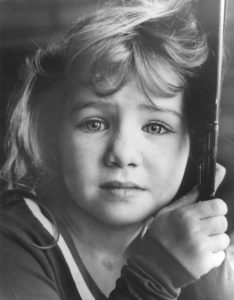 I recently plowed my way through what must have been a few hundred emails I had sent to my friends during that unfortunate year. As I read, I was filled with shame.
I recently plowed my way through what must have been a few hundred emails I had sent to my friends during that unfortunate year. As I read, I was filled with shame.
“Oh, Lord! How I must have sickened them! Such an imposition! Why couldn’t I have left them alone? What was I thinking to dump my pain on friends who didn’t even understand?”
It was the child in me—a child In need of parental love. An adult who never grew up.
Though there were times I realized what I was doing, the pressure to keep writing emails to those I felt closest to was beyond my control to stop. I tried changing my behavior when I recognized there was a problem. My attempts might work for a short time, but it never lasted. It would take psychotherapy to help me deal with this problem.
Years later, I learned that I should go to my counselor with my emotional crises, not to my friends. It’s impossible for a well person to understand such pain in a person. A lot of misunderstanding could develop. Besides, we’d be in danger of wearing out our friends.
It isn’t wise to get your friendships so focussed on pain that it starts becoming what your times together are about. There are so many healthier things to base a friendship on.
I have a friend who will stop me when it looks like I want to talk about painful things. She asks me, “Would this be better to go to your counselor about?” I’m lucky to have such a friend.
The hurtfulness that I started experiencing in 2015 was, I’m sure now, due to my bothersome behavior, which included too many emails and numerous complaints. People had simply had enough. Faces that used to smile at me, now showed annoyance—even anger at times. It took a long time for me to understand why this was happening. Going through my old emails over the last few days is helping.
It was obvious that friends were starting to avoid me. My frequent contact with them was a big part of the reason. Illness and emotional problems were at the root. Even so, many might have thought my character was to blame. Few understand that a person’s character is not usually affected by their mental illness. It may be hard for people to see the real person underneath the behavior.
I was hurt when one person told me that he treated me differently than others because of how I respond at times. This person frequently ended up treating me with disrespect and insensitivity. My behavior was not recognized to be the result of illness. It was expected that I should be able to change.
Although I had retired from my group because my mental health was failing, I was now treated like a “bad” person—the first time since I had started my ministry nine years earlier. The work I had done had given me a good name. I had accomplished a lot, making a difference in the world of mental health.
But now? Things had suddenly changed. I was insulted, criticized, humiliated. Questions went unanswered. Quality time with friends ceased.
The kindness I once knew had gone missing. I felt unloved.
But I’m now thinking: Maybe the person who hurt me had the same kind of trouble I did. Perhaps it was difficult to stop behavior that couldn’t be helped. Did either of us know what we were doing?
marja
Leave a Reply